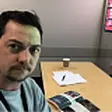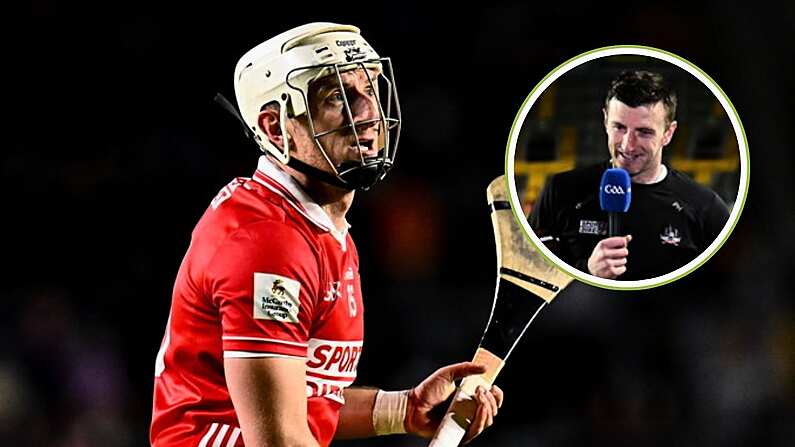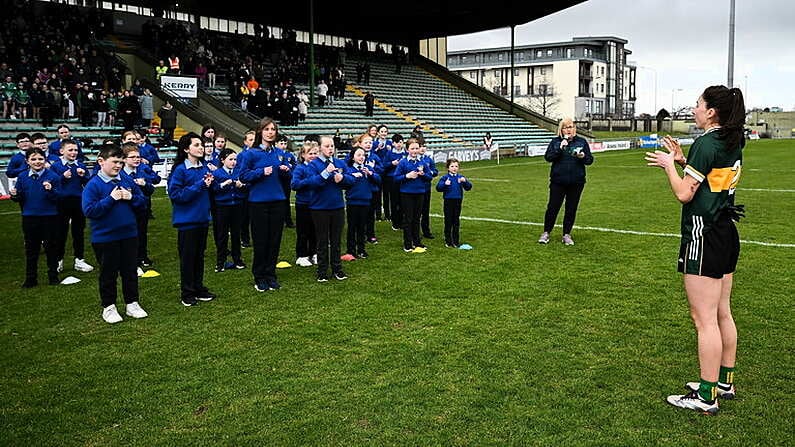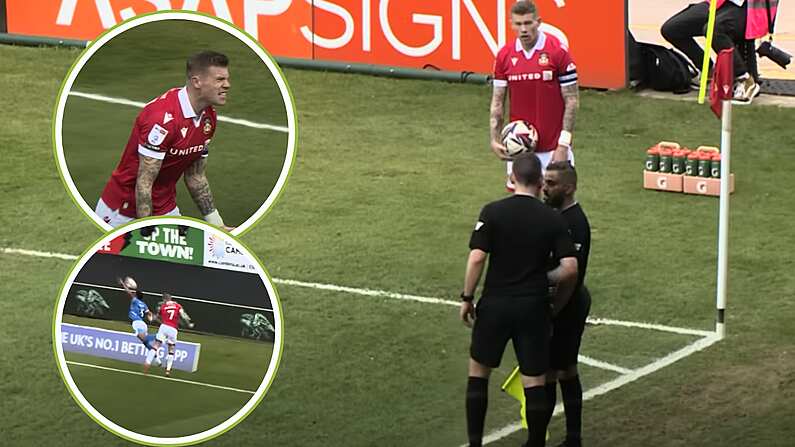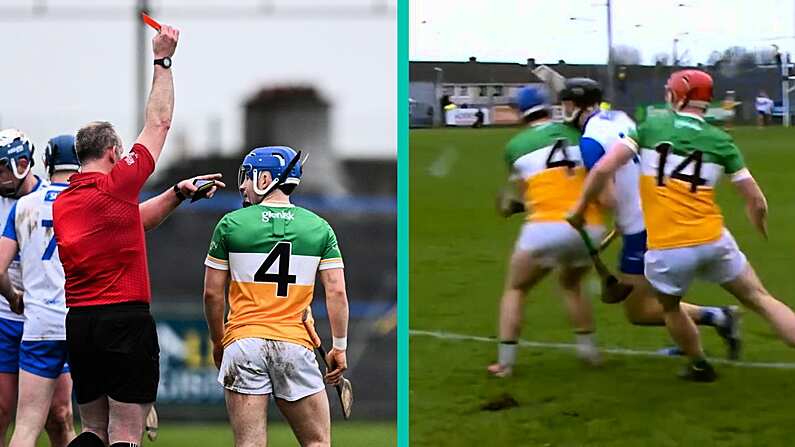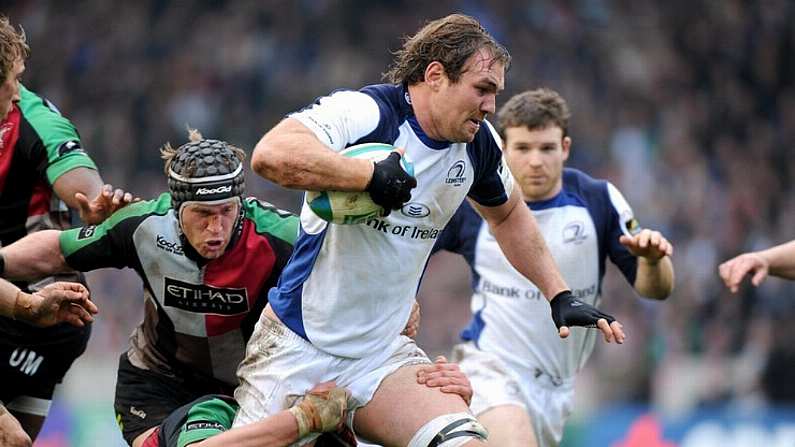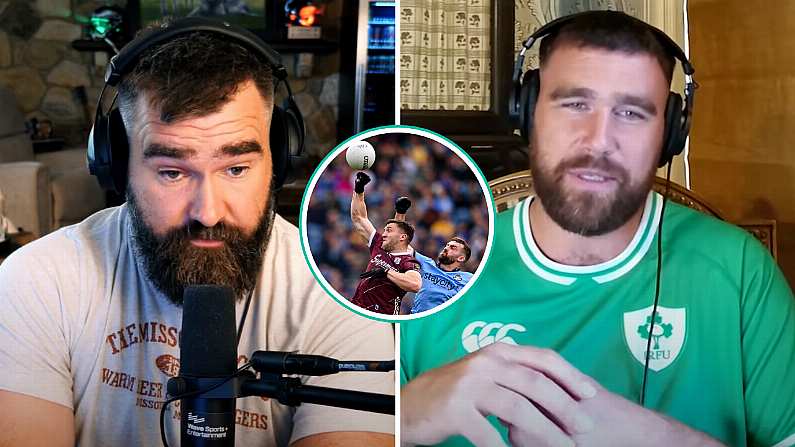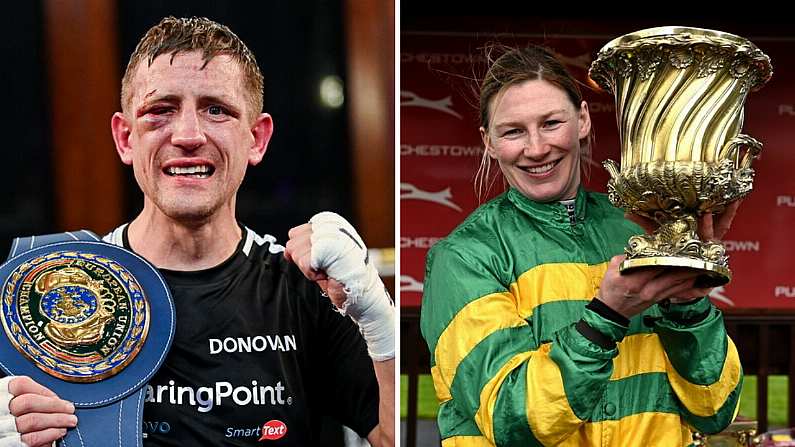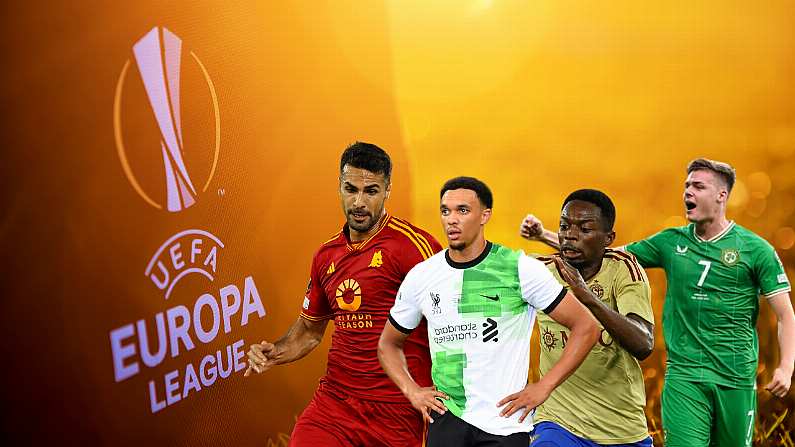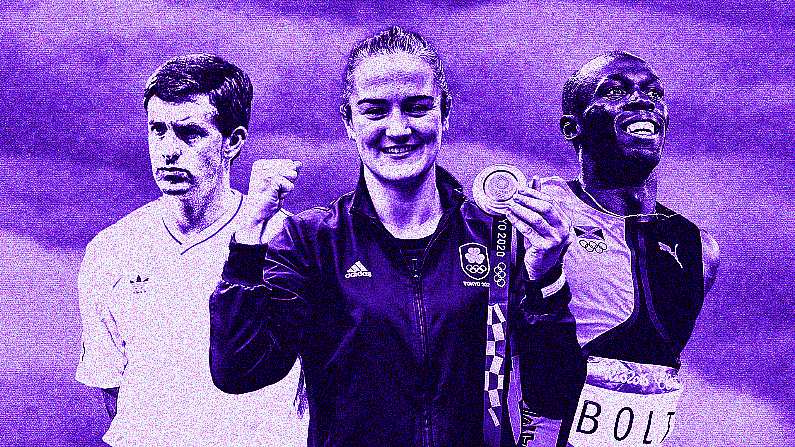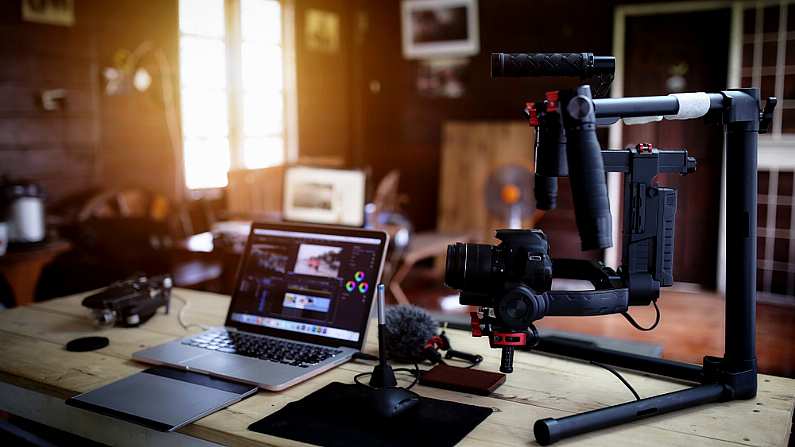For those of who watch, consume and most importantly, play sport, there are few things as cruel as injury. While the beauty of sport comes from watching people transcend the physical constraints, injury is a reminder that the body does have its own limits. Injury has shortened some of the greatest careers and robbed us of careers laden with potential. Pretty much every sportsperson will have to cope with injury at some point in their career. And for many of the world's greatest sportspeople, the battles to overcome serious injury are arguably the greatest challenges they'll take on.
Several of Ireland's most famous sportspeople have had to overcome catastrophic injury in their careers. Here are their recovery story.
Seamus Coleman
In March of 2017, public affection towards the Ireland football team was high, following on from their exploits at the European Championships in France the previous summer.
Seamus Coleman was arguably the darling of them all, having taken over the captaincy from the departed Robbie Keane, and his amiable persona endearing him to the Irish football public.
At the Aviva Stadium in March, Ireland played a huge World Cup qualifier against Wales. Chris Coleman's team had made their own history at Euro 2016, and there was huge anticipation heading into the fixture.
However, the match will be remembered for a shocking tackle on the Ireland captain. In the moments after, there was huge concern for Coleman, as he lay on the turf with a broken leg following a shocking challenge from Neil Taylor of Wales.
The TV producers opted not to show replays of the incident; it was that bad. Coleman received oxygen on the pitch and later underwent surgery for a fractured tibia and fibula, as the nation prayed for a quick return.
Months of rehabilitation ended with a brilliant return to the Everton side for a 2-1 win over Leicester City in January 2018. Coleman has gone on to prolong his career as a much-loved captain of club and country.
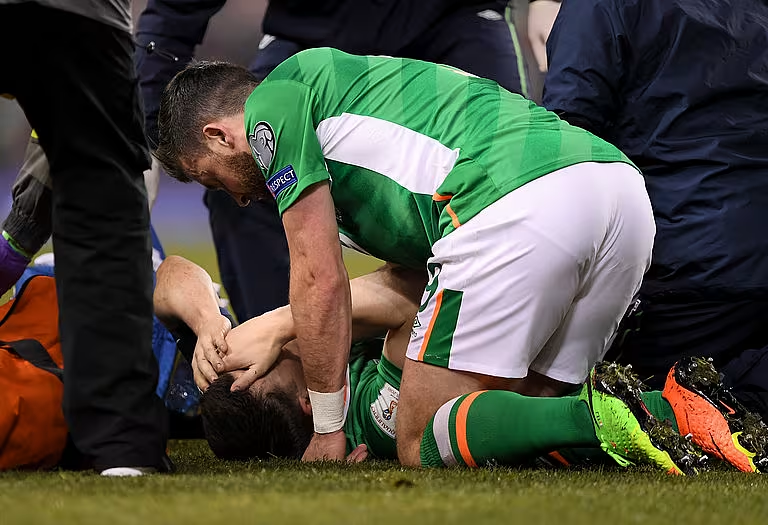
24 March 2017; Seamus Coleman is comforted by teammate Shane Long of Republic of Ireland after picking up an injury during the FIFA World Cup Qualifier Group D match between Republic of Ireland and Wales at the Aviva Stadium in Dublin. Photo by Brendan Moran/Sportsfile
Tom Parsons

9 June 2018; Tom Parsons of Mayo, accompanied by his wife Carol Hopkin, receives a standing ovation from supporters upon his arrival prior to the GAA Football All-Ireland Senior Championship Round 1 match between Limerick and Mayo at the Gaelic Grounds in Limerick. Photo by Diarmuid Greene/Sportsfile
Mayo midfielder Tom Parsons had already played in two All-Ireland finals by the time he suffered extensive damage to his left knee in a 2018 Connacht Championship game against Galway.
The injury left him with dislocated knee and three ruptured ligaments along with calf and hamstring damage. A blocked artery led to fears that he would lose function in his leg but as he explained in 2023, he was rushed to surgery within 40 minutes of the incident.
Remarkably, Parsons returned to play in the following year's All-Ireland semi-final defeat to Dublin and remained around the panel until his inter-county retirement in 2021.
An inspiration.
Roy Keane
Manchester United's greatest captain was still settling into the role when disaster struck in September 1997.
In an attempt to tackle Alfie Haaland of Leeds, Keane tore his cruciate ligament, leaving Ireland and United without their inspirational leader for the remainder of the campaign.
While many players would have wilted at the challenge ahead, Keane got to work on regaining full fitness, with the help of United's medical team.
The Corkman was back on the field in time for the 1998/99 season, one for which he would go down in United folklore for inspiring his side to the treble.
Without Keane back pulling the strings, it could be argued that United would never have reached those heights. A true comeback for the ages.
Ruby Walsh

29 January 2017; Ruby Walsh is dismounted from Royal Caviar after falling at the last in the Frank Ward Solicitors Arkle Novice Steeplechase during the Leopardstown Races at Leopardstown Racecourse in Dublin. Photo by Cody Glenn/Sportsfile
Some sportspeople are forced to cope with catastrophic injury in their career; others must endure a regular accumulation of pain.
Injuries are part and parcel of horse racing and Walsh had more than his fair share over the years.
Throughout his career, he broke around 15 bones in his body, including his right leg on three occasions. Both wrists and both ankles have been broken and both of his shoulders have been dislocated.
There has been damaged vertebrae along the way, while a fall at Cheltenham in November 2008 led to Walsh having emergency surgery to remove his spleen.
Every time, he has bounced back to further solidify his status as one of the most iconic names in Irish horse racing. While he may be a bit sore in his retirement, Walsh's resilience can only be admired.
David Burke

21 January 2024; David Burke of St Thomas' after his side's victory in the AIB GAA Hurling All-Ireland Senior Club Championship Final match between O’Loughlin Gaels of Kilkenny and St Thomas’ of Galway at Croke Park in Dublin. Photo by Piaras Ó Mídheach/Sportsfile
The dreaded ACL injury struck Galway's 2017 All-Ireland Hurling-winning captain at a training session in March 2023, and he knew that it was bad the moment it happened.
"I heard a snap and the pain was unbearable. I knew it was serious and might jeopardise my place on the team," he later told RTÉ show 'My BodyFix' with Kathryn Thomas.
Remarkably, Burke was back in action within seven months, coming off the bench to help St Thomas' win their Galway SHC title in-a-row, before inspiring his club to All-Ireland final glory against O'Loughlin Gaels in January 2024 with a man of the match performance.
Brian O'Driscoll

25 June 2005; A member of the medial staff signals for a stretcher as British and Irish Lions captain Brian O'Driscoll is attended to by team doctor Dr. James Robson. O'Driscoll is suspected to have a dislocated shoulder. British and Irish Lions Tour to New Zealand 2005, 1st Test, New Zealand v British and Irish Lions, Jade Stadium, Christchurch, New Zealand. Picture credit; Brendan Moran / SPORTSFILE
BOD was in the prime of his career in 2005 when he headed off to New Zealand as captain of the British & Irish Lions.
Less than a minute into the first Test, he was the victim of a cynical joint tackle at the hands of Tana Umaga and Keven Mealamu. The pair lifted a leg each during a ruck, before driving O'Driscoll into the ground head-first, leaving the Leinster man writhing in agony on the turf.
The so-called 'spear' tackle left O'Driscoll with a dislocated shoulder and ended his Lions tour. Here's how O'Driscoll described the physical toll of the tackle to Donald McRae of the Guardian.
"You should have seen it soon after [the surgeons] opened up the shoulder, reset the joint and tightened it up with 16 staples. It looked like a shark had tried to rip my arm off."
After missing the Autumn internationals, he would bounce back to take on the Leinster captaincy the following season.
O'Driscoll told the Guardian he received a touching message from a friend helped him shake off the sadness of missing out on the rest of Tour.
I got a text from my friend Donal O'Flynn. At 17 he broke his neck playing rugby. He's now a paraplegic and he sent me an amusing and touching message after I got hurt. I fell straight out of my huff then.
As skipper he would lead the province to multiple prizes, including three Heineken Cups, while inspiring Ireland to their Grand Slam of 2009, and two additional Six Nations successes.


